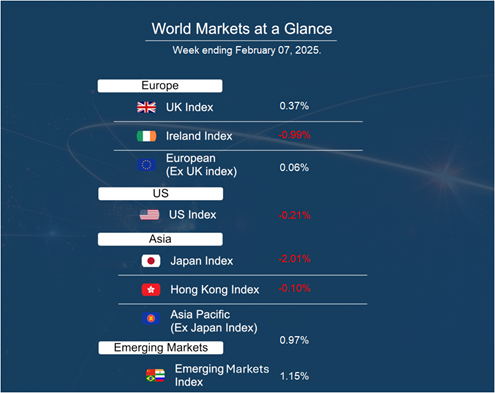As shown in the accompanying table, it was a mixed week for financial markets. U.S. stocks stumbled early on due to new tariffs and ongoing trade negotiations with Canada, Mexico, and China, which unsettled markets despite prior mentions by Trump. China responded with countermeasures against US imports, while tariffs on Mexico and Canada were suspended for a month to allow for negotiations, allowing equities to recover, ending the week with only modest declines. Trump’s comments on U.S. interests in the Gaza Strip, following previous remarks on Greenland and the Panama Canal, drew criticism but are unlikely to lead to real action, as Trump is known for off-the-cuff statements.
Earnings reports were a key driver of market sentiment, with 77% of S&P 500 companies exceeding fourth-quarter earnings expectations and 63% of companies surpassing sales projections, according to FactSet data.



